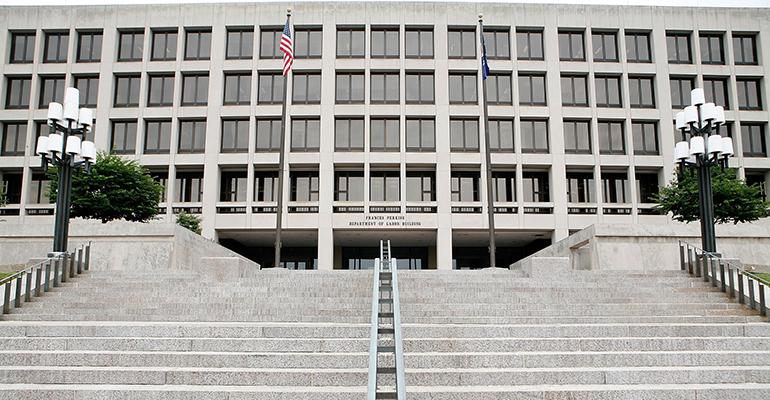Dale Brown, the CEO of the Financial Services Institute, was a keynote speaker at the recent annual conference of the Private Advisor Group, an RIA based in Morristown, New Jersey and an Office of Supervisory Jurisdiction for LPL with over 600 independent advisors in its group.
Brown detailed his organization’s efforts to stop the Department of Labor’s fiduciary rule and laid out the reasons why he, as well as many in the industry, considers it unworkable. The top reason the rule is a “disaster,” in Brown’s opinion, is not in its intention, but in its execution. And, the top concern is that it leaves enforcement up to tort attorneys.
The Department of Labor has “deputized every plaintiff attorney in the country” to carry out enforcement of the standard, he said. “They’ve been gathering for months to learn how to sue you. That is a horrific outcome. You face a risk you can’t calculate.”
An advisor in the room asked Brown, if that’s the case, what has the industry brought to the table to address the very real concerns that led the Department of Labor to pursue a rule in the first place? “We got something shoved down our throats,” the advisor said. “What answer has the industry brought to the table?”
It’s a good question. Brown suggested he was in favor of letting the Securities and Exchange Commission move forward with its efforts to create a uniform fiduciary duty for all advisors, with simpler disclosure requirements and a structure that would not potentially “orphan” the 28 million mom-and-pop accounts that he believes would be priced out of service under the Department of Labor’s version of the rule.
But, he conceded, if the SEC has not been able to accomplish this in the seven years since Dodd Frank required it, it’s unlikely to happen now in Washington’s current state of transition. Brown said he could see one scenario moving forward: The Trump Administration rolling back the DOL rule, yet, the SEC remaining unable to move forward on its uniform fiduciary standard. “We’d be back to square one. That’s not acceptable.”
He suggested the industry should try to adopt its own standard. “How can we, on a voluntary basis, create some best interest principals and practices that firms can subscribe to?”
I’m skeptical. There are groups making good efforts. The Institute for the Fiduciary Standard recently launched its program to give certain firms a “seal of approval” if they publically subscribe to the institute’s professional conduct standards. There are some 26 advisory firms on board. No doubt those firms are solidly committed to putting clients first, but it remains to be seen if the institute’s designation becomes the bar by which all firms are ultimately measured by end clients. Brown made no mention of the institute’s efforts to formalize voluntary compliance, and I’m not sure we could expect any endorsement from the FSI.
Unfortunately, voluntary compliance is noble, but it won’t protect consumers. While the market itself may push all firms toward a more client-focused business model, good intentions and public declarations of fealty won’t solve the problem.
There are still plenty of so-called advisors out there who see chances to make a quick buck and take them when they can. There needs to be a way to publically call them out on it, and unless the industry is prepared to voluntarily do that, even in the absence of a best interest rule, good intentions won’t nearly go far enough.

David Armstrong
Editor-In-Chief

